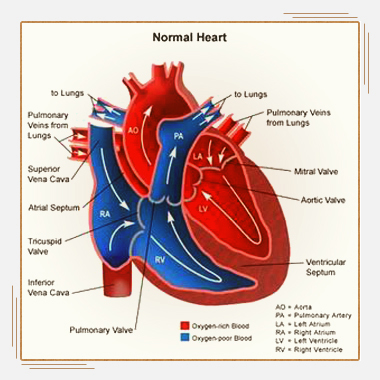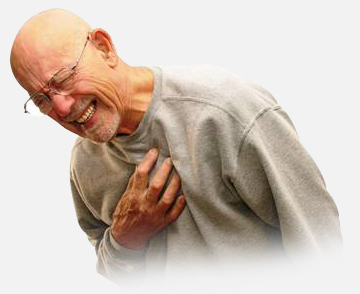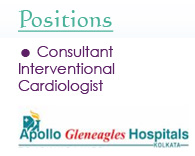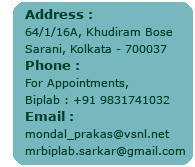| |
| |
| Know Your Heart |
| |
 |
The term cardiac (as in cardiology) means “related to the heart” and comes from the Greek word kardia (heart).
The human heart, one of the most vital organs in the human body, is responsible for providing a continuous blood circulation to the body. It is divided into four chambers. The 2 upper chambers are the left atrium and the right atrium, while the lower chambers are the left and right ventricles. The two atria receive blood from the body and lungs.The right ventricle pumps the blood into the lungs while the left ventricle pumps the purified blood from the lungs into the entire body.
The human heart on an average beats 72 beats per minute and weighs 300g to 350g in males and 250g to 300g in females. |
| |
| KEY SYMPTOMS OF HEART DISEASES |
-
PAIN OR DISCOMFORT IN CHEST
Any type of pain, choking, squeezing, numbness, pressure or any other discomfort in chest, neck, or upper abdomen is an alarming sign. When associated with pain in the jaw, head, or arms please consult your doctor immediately. The pain can last from split second to days and can occur sporadically or predictably. Please note that medical conditions other than heart disease may also cause chest pain.

PALPITATIONS OF HEART
Unusual feeling of the heart beat within the body is termed as palpitation. It is either caused by skips in the heart beat followed by a strong beat or irregularly rapid heart beats. Most people with palpitations have some sort of abnormality in their heart rhythms. The most common causes of palpitations are premature atrial complexes (PACs), premature ventricular complexes (PVCs), episodes of atrial fibrillation, and episodes of supra ventricular tachycardia (SVT).
-
DIZZINESS
This is a common symptom and can be attributed to many bodily disorders. However, if it occurs please consult your doctor since it may be a symptom of heart disease also.
-
LOSS OF CONSCIOUSNESS
Loss of consciousness or fainting or Syncope, as it is commonly termed, often does not indicate a serious medical problem. The causes of syncope can be grouped into four major categories: neurological, metabolic, vasomotor and cardiac. Of these, only cardiac syncope commonly leads to sudden death. So it is imperative to find out the cause of such a problem if it occurs.
-
SLEEPINESS, LETHARGY AND FATIGUE
Lethargy and fatigue symptoms can also be due to disorders of virtually any organ system in the body. They can also be symptoms of heart disease specially heart failure. So it is advisable to consult a doctor to find its root cause and start treatment accordingly. Sleepiness, specially daytime sleepiness is common with patients of heart disease.
-
BREATHING TROUBLE
Shortness of breath is generally a symptom of cardiac or pulmonary (lung) disorders. Coronary artery disease patients or patients with heart failure commonly experience shortness of breath while waking up suddenly at night start or while lying on their backs or during exertion bouts.
|
| |
| DIETARY WAY TO A HEALTHY HEART |
Since the food we consume affects the health of the heart, so we must learn to follow a healthy heart diet. For best results, consult your doctor for an eating plan that best suits your dietary needs. Following are some basic recommendations.
- Restrict fat intake to less than 30% of total daily calories.
- Polyunsaturated fatty acid and Saturated fatty acid intake should be no more that 10% each of total daily calories.
- Intake of cholesterol should be less than 300 mg per day.
- Sodium intake should be no more than 3000 mg per day.
- Beware of harmful chemicals in food like caffeine, MSG and other preservatives.
|
| |
|
|
|
 |
 |
 |
 |
- M.D.
- MRCP (UK)
- MRCP (Ire.)
- MRCPS (Glasgow)
- D.M. (Cardiology)
- D.N.B.(Cardiology)
- FACC (USA)
Consultant Interventional
Cardiologist
|
| know more |
|
 |
 |
|